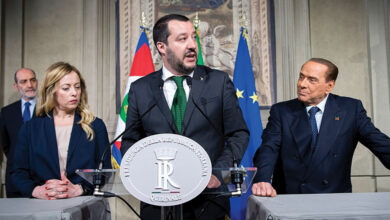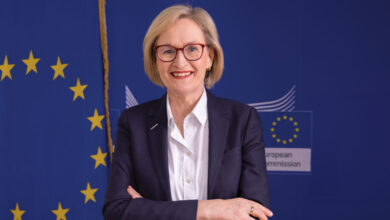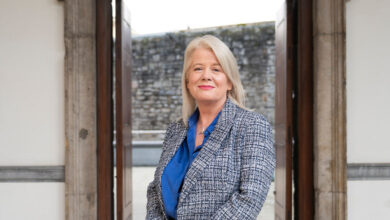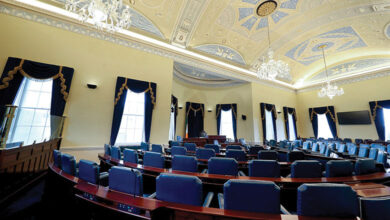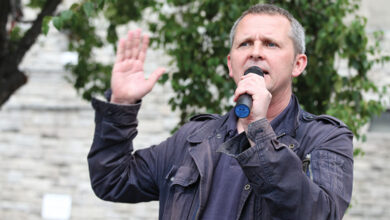Leading change and powering the future
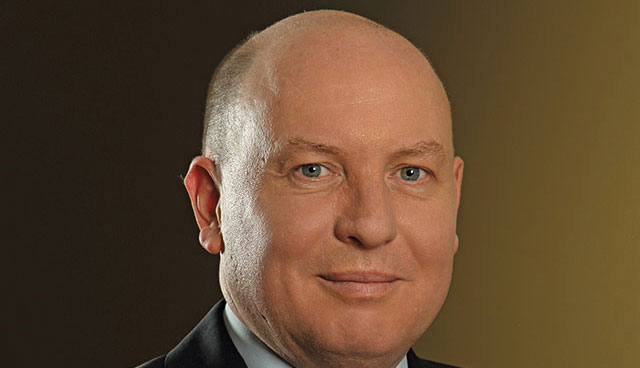
The energy system and the electricity system are changing and the scale and pace of that change is accelerating. Working with business and communities around the country, and with our stakeholders in the energy sector, EirGrid is stepping up to this challenge.
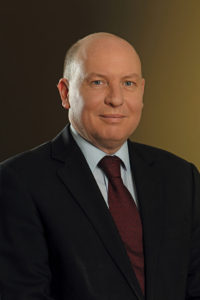
For large businesses that are making investment decisions here in Ireland, a secure supply of electricity is at the top of their list of critical priorities. In fact, a recent survey highlighted that 90 per cent of major companies viewed quality of electricity as important or very important in their investment decisions in Ireland.
Companies like Apple, Google, Facebook and Amazon have all located data centres here in the in the past two years. Given that these centres all require a large amount of reliable quality electricity; this would not have been possible without confidence in our electricity system.
Demonstrating leadership
In order to maintain and build on this confidence, EirGrid is focused on planning for the future. To ensure a secure supply of electricity now and for years to come, EirGrid must maintain and develop the national grid. This may sometimes require new infrastructure, such as the proposed North-South Interconnector, but where possible, we make the most of existing assets.
We’re continuously pushing the envelope of knowledge around power system operation with our innovation programmes, including DS3 (Delivering a Secure, Sustainable Electricity System) and the Smart Grid Innovation Hub. These initiatives explore the use of new technologies and methodologies to allow for a more flexible and adaptive use of the grid. This is in response to the increasing role of renewable energy sources, which can’t simply be “turned on” to meet demand for electricity.
In the meantime, it is critical that we continue to look ahead. At EirGrid, we base our plans on the key forces that are central to shaping the energy industry in the future. These include climate change, new technology, regionalisation and user participation.
Climate change
EirGrid has no role in choosing one form of energy generation over another, and we have no interest or involvement in any form of energy generation. However, we are required to respond to Government policy, and to connect new energy generators to our grid when requested.
Because of the threat of climate change, there is an increasing push for greater use of renewable energy sources. This requires significant changes to how we operate the grid, and how we plan for its future.
Climate change truly is the challenge of our generation. As an industry a lot of work needs to be done and it is clear that there is no silver bullet, no easy answer. Renewable energy, energy efficiency, transport and land use all have a role to play and will require innovative approaches and solutions.
On a positive note, what was agreed in Paris last year at the United Nations Climate Change Conference (COP 21) was remarkable.
As Al Gore commented: “This universal and ambitious agreement sends a clear signal to governments, businesses, and investors everywhere; the transformation of our global economy from one fuelled by dirty energy to one fuelled by sustainable economic growth is now firmly and inevitably underway.”
New technology
In technological terms, the electricity industry is changing rapidly. What we’re now seeing is new technologies, new telecommunication capabilities and the rise of big data. These all have the ability to disrupt the value chain and introduce new business models across many sectors. The electricity industry, and especially the transmission grid, will need to respond.
There are new technology innovations in energy generation and transmission. The Irish grid now includes 10MW of battery storage, operated by AES in Belfast. EirGrid is also trialling new devices to control, in real time, the flow of power on our transmission system.
These provide a glimpse of how we will manage and transition the power system over the coming 20 years.
Regionalisation
At EU level, approaching energy from a regional perspective will continue to be important for a number of reasons. It assists us as we seek to establish the foundations to address climate change. It also empowers us to drive competition as it decreases barriers to trade and drives out lower prices for consumers. Finally, it addresses energy security in what is an increasingly noisy and fractious geo-political environment.
Regionalisation has a number of implications for Ireland. First of these is the new wholesale energy market arrangements being put in place to meet the EU target model. There is also a focus on increased interconnection. EirGrid commissioned the East West Interconnector to the UK in 2012 and EirGrid is now looking at a new interconnector to France, called the Celtic Interconnector.
This will all lead to increased coupling between markets, which will drive consolidation, increased competition, and ultimately lower energy prices.
User participation
In contrast to regionalisation at a European level, user participation is about individuals at household and domestic level becoming active in the energy market. This will be enabled by technology advances and will lead to the transformation of today’s energy models.
In turn, this will raise some interesting dilemmas in terms of how assets are paid for. For example, if you have invested in solar panels and a battery and largely use the grid as a back-up, how should you pay for the grid that’s there providing that back-up? Also, not everyone will have the opportunity or the resources to invest in a solar panel or a battery. There is a danger that these people could end up paying disproportionately more for the grid when it is providing a service to all. This is an issue of social equity and needs to be addressed as we see new business models emerge.
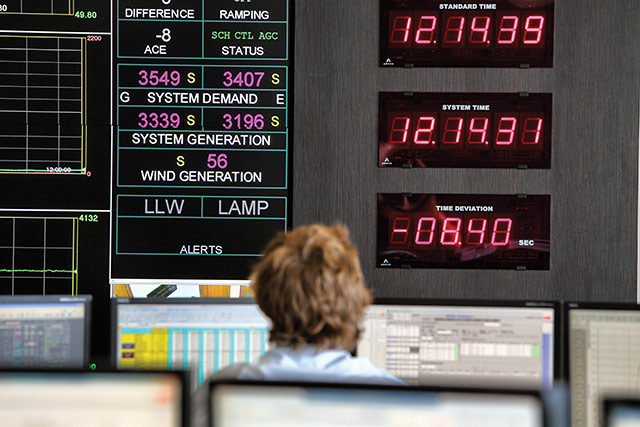
Social acceptance
As we think about these changes in the energy system over the next 20 years, we need to ensure that we bring people and communities with us. Without that, we won’t have the ability to change the energy system to address these challenges.
At EirGrid we are acutely aware of the need to engage with communities at the earliest possible opportunity. We need to build trust and respect to get input into deliberations and decision making right from the start.
We recently reviewed how we consult with and engage with communities on grid infrastructure projects. This followed significant public feedback to our proposed development of some major projects. As a result, we’ve completely transformed our approach to consultation. We’ve set out 12 commitments that set out an entirely new approach to developing the national grid.
EirGrid must achieve the trust and permission of the public to carry out our work. This is so Ireland can respond to the coming changes in our energy system. To achieve this, EirGrid will continue to bring people and communities into our decision making process at the earliest possible opportunity.
Driving innovations – residential demand side management
In June, EirGrid launched a new residential demand-side management initiative. Power Off & Save is an innovative pilot that will reward customers who agree to reduce their energy use in response to a signal from the national control centre. Over the next 18 months, we’re trialling this programme, in conjunction with Electric Ireland to 1,500 homes across the country.
The key, innovative part of all of this is that we are enabling these domestic households to participate in meeting the needs of the power system without the need for a smart meter. As we take this pilot forward, we will see very significant benefits in terms of more efficient operation of the power system and lower costs for consumers as a whole.
Powering the future
Continued collaboration across society, from leaders in the public sector, the business community and communities right across the country, will be central to shape the future of our energy industry. These partnerships will also ensure EirGrid can respond to the challenges and opportunities of change in the energy market. Working together, we can be ready for the future.
EirGrid plc – Transmission System Operator, Ireland.
The Oval, 160 Shelbourne Road, Ballsbridge, Dublin 4.

